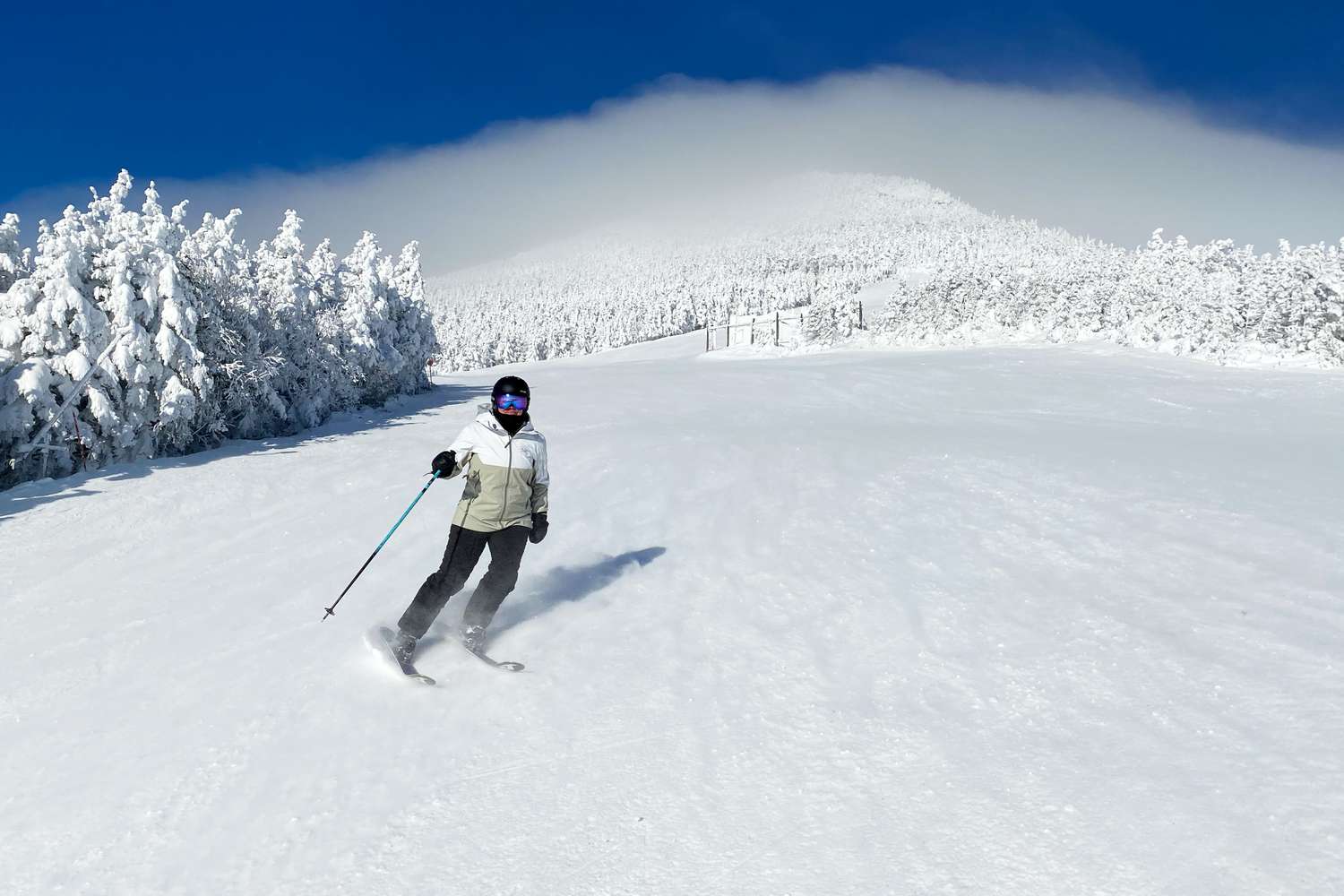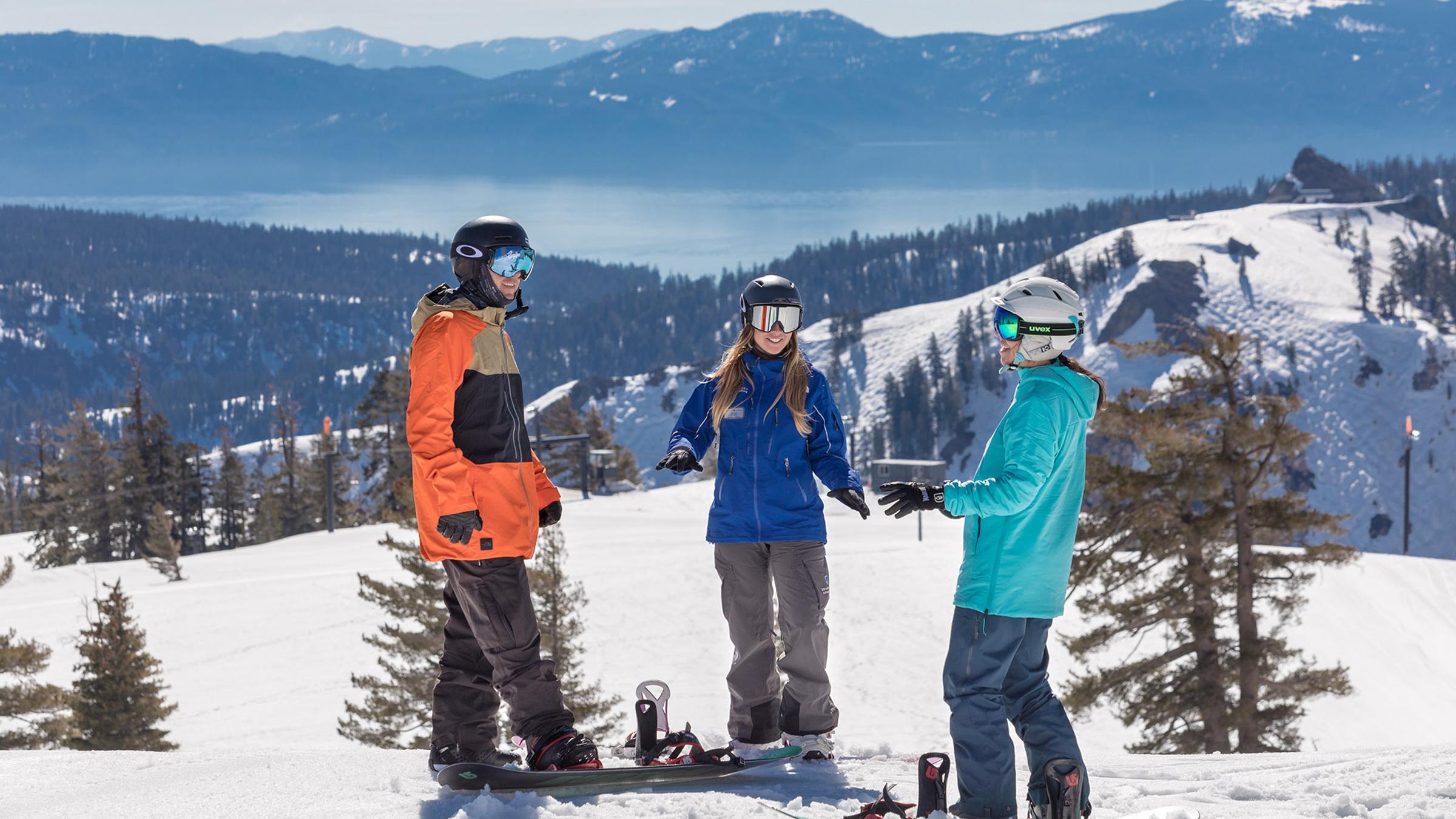
The best ski coats will keep you comfortable, warm and safe from the weather. These features are essential if your day is spent on the slopes. You will also be more comfortable and safe if they have a quality design.
You will need a different type of jacket depending on what kind of skiing and where you ski. Also, how cold it is. For example, if you're a freerider, you'll want a lighter, more flexible design with a more breathable shell (like Dynafit's Free Infinium Hybrid). Backcountry skiers need heavier, more durable jackets.
Breathability should be a top priority for all skiers, whether they are backcountry or resort downhillers. The best ski jackets are those with a 3-layer premium fabric (such as Gore-Tex or Polartec NeoShell).
The ski coats that have a synthetic filling, such as Patagonia’s PlumaFill (or PrimeaLoft Gold), are more breathable and won't be as warm. These jackets would be a good choice for resort skiers during cold weather. They will not make you overheat and they are lighter.

If you're looking for a budget-friendly option, Wildhorn's Dover Jacket is one of the best values around. It's waterproof, lightweight, and a great fit.
Arc'teryx's Sabre women's Sentinel Jackets are the most durable and high-performance jackets. The premium Gore-Tex shell has a three-layer construction and the soft-touch lining adds warmth and comfortable. It is helmet compatible, highly adjustable and has features to help you enjoy backcountry hiking.
This streamlined design is perfect for resort and backcountry skiing. It offers all of the essential features, at an affordable price. It is extremely lightweight, comes with pit zips, and has a powder-skirt, so you can be ready for whatever Mother Nature may throw at you.
Its high-quality fabrics are also surprisingly sustainable: it uses recycled materials and PFC-free DWR coatings. Bluesign certified and Fair Trade certified, it is made by companies that care about the environment.
The best ski-snowboard jackets have a good combination of warmth, ventilation, and weight. They'll also have a hood that fits well and is easily adjustable, so you can customize your fit for different conditions.

They should also have plenty of pockets and pit zips to store a phone, or other gear. Additionally, they need to be durable and able to withstand harsh weather and wear.
We've compiled a comprehensive list of our favourite ski jackets. This list will be updated as we test new ski jackets. Check back often! We'd love to hear your thoughts and if you have a favorite ski jacket, let us know in the comments!
FAQ
Do you worry about missing something while traveling?
Yes, I often forget stuff. This is more common when I go on a short trip. Fortunately, I always have everything, so I never run short of things.
For example, I always have my passport with me. Also, I always make sure that I have enough money before I purchase tickets.
I also always have my phone charger with me. And I use a small bag to store other items.
Where should I store my luggage?
There are many choices. One of the most popular options is to use airport lockers. These are normally located near the security area. They cost between $5-10 per day, depending on the locker size.
You could also rent a storage facility. These units are often located in large shopping centers or hotels. There are discounts available for multiple units, although prices can vary.
A third option is to hire a porter. A porter will take your luggage from the carousel and bring it to your room. Each time he assists you, a small fee will be charged.
Which documents should I bring with me on vacation?
Keep copies of important documents handy for when you're on the move. Keep a backup of your passport and driver's licence, as well as any credit card information, if you intend to use an ATM.
It is a good idea if you have a photocopy your passport so that it can be used in the event of a need.
Don't forget to attach copies of your itinerary or reservations. These will help to keep track of where you are going and what sights you're planning to see.
As well as this, you should keep a copy of your flight ticket and hotel reservation details. If you have any problems, you can always contact someone back at home.
Finally, it's always a good idea not to leave anything valuable unattended. Your valuables will be safe if you keep them in a money belt, or inside your luggage.
You can avoid expensive loss by checking your baggage before you travel.
Keep in mind: It is safer to keep it simple than to plan everything.
So just relax and enjoy your journey!
How much luggage should I take with me?
The length of your trip will determine how much luggage you need. For a flight, hand baggage is not necessary, typically less than 20 kg. You will need more space if you travel by train or bus.
An airport form with information regarding your flight will be handed to you upon arrival. This will include information such as the weight of your bags and whether you require assistance when checking them in.
Always check your luggage before you leave the house. If you don't, then you could find yourself waiting around for hours while everyone else checks their luggage.
Travel light as you never know what may happen. For instance, if your bag is lost or stolen, you won’t have any clothes.
What snacks can I bring on the plane?
You have many options for snacks to take with you when flying. You might consider bringing along any food items you enjoy while traveling.
You could pack, for instance, chocolates and other chocolate-related treats.
If you're looking for something savory, perhaps you could try packing some cheese or crackers.
It's also worth considering what kind of beverages you'd prefer to have aboard. Perhaps you like hot or cold beverages?
Be sure to pack all snacks and drinks securely.
This will ensure that your belongings are safe during transport.
What should you take on vacation?
It's important to decide what you want for your holiday. This is not about packing clothes. You also need to consider where you are going and how long you are staying there.
The first thing you need to do is think about what types of activities are most appealing to you. For example, if you are going to an exotic destination, then you may want to try scuba diving. If you are planning to stay somewhere longer, then you might want to take part in local festivals or events.
To ensure that your health is taken care of, it is essential to inform those who will be taking care of you about any issues.
What is the first thing to do after arriving at your travel destination?
It is a good idea to have a plan for when you get to a destination. It will let you know what to expect, and where to go next.
Planning ahead is essential to avoid being late for any important events.
If you plan to spend more than one day in a given city, it is important to research the museums, parks and landmarks that you would like to see.
You might also want to get a map and learn more about the history of the region.
Statistics
- They're also likely to offer babysitting services, in case you'd like to have dinner one night after 7 p.m. (travelandleisure.com)
- Pack sweaters, jackets, and underwear in reusable compression bags creating up to 75% more space in your luggage. (wikihow.com)
- According to Maori legends, this park holds 14 fjords that were all carved by a giant stonemason with an adze. (busytourist.com)
- Case in point: the private island of Ilha Caldeira, less than seven miles off the coast as part of the Primeiras and Segundas Archipelago, is located within the marine-protected area with 20 percent of the country's intact living coral. (travelandleisure.com)
- Between the ages of 11 and 13, kids, or tweens, will likely want some autonomy but also need boundaries. (travelandleisure.com)
External Links
How To
How to plan your next vacation
Booking flights, hotels, car rental, and activities are just a few of the many aspects involved in planning a trip. You must also consider your budget, destination, weather forecast, and other important factors.
These points should be kept in mind while you are planning your next holiday.
We have created a step to guide that will help you plan your next trip. This guide has been compiled using customer feedback as well as our own experience. This guide will help you plan your next vacation easily.
Steps:
-
Plan your Budget - This is the most important step to take when planning for a trip. Before you can begin to plan where you want to go and what you'd like to do, you should know how much. In the event that you don't have enough cash, you might need to cancel your plans.
-
Book Your Flights - After determining your budget, the first thing you should do is book your tickets. Be sure to get the lowest price flight deal. In addition, make sure you check whether there are any special offers for certain seasons. These deals could be a great way to save money.
-
Select Your Destination - After you have booked your flight, you will need to choose where you want to travel. Multiple factors will play a role in choosing the destination you choose, such as location (wherever you are), climate (what season), culture (how friendly and affordable it is), cost (how affordable it can be) and cost.
-
Find Accommodations - After choosing your destination, the next step would be finding accommodations. There are many accommodation options available, from inexpensive hostels to luxury suites. Your needs and preferences will determine the type of accommodation that you choose. If you need to be near the city center, a hotel may not suit your needs. On the other hand, if you prefer quiet places away from crowds, a homestay may suit your requirements better.
-
Select Activities and Attractions - Now is the time for you to choose the attractions and activities that you want to include in your itinerary. Depending on your length of stay, you may choose to add or remove activities.
-
Determine Schedule - Now that you've selected the activities and attractions you'd like to include, it's time to determine your itinerary. To achieve maximum value from your trip, you should stick to a fixed schedule. You can still enjoy your trip if you are able to travel at your own pace.
-
Make an itinerary - This is where you include all details about your trip. It is important to write down everything you need, from accommodation to meals, to activities to restaurants, and to create a list.
-
Research Online – Make sure you research everything before you leave on your trip. You can read reviews and testimonials about other destinations to get their opinions. This will help you plan.
-
Take care when packing. Too many clothes is not a good idea. Don't bring five clothes. Bring three. Make sure you bring clothes that are appropriate for the area.
-
Always be prepared Be prepared before you set off on your trip. You don't want to waste time searching for important documents while you're still in transit.